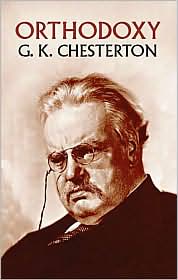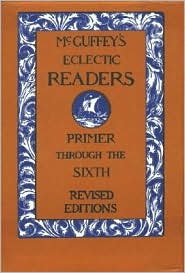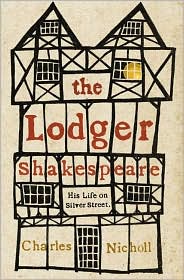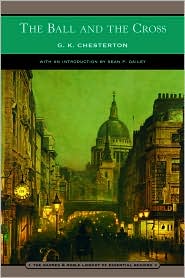To list on this post, but I'll start with four.
Four wonderful things born in 1908
That made that year particularly great.
So here in my awkward and doggerel rhyme,
I'll celebrate the centennial of four things sublime.
 The first was when one Gilbert, so witty and foxy
The first was when one Gilbert, so witty and foxyPublished his masterpiece, Orthodoxy;
This work, so enchanting, funny, and profound,
Reflects its author, G.K., (though perhaps not as round).
Its excellence is compounded when -- oh woe is me! --
You realize he wrote it when he was thirty-three.
"For if this book is a joke, it is a joke against me. I am the man who, with the utmost daring, discovered what had been discovered before. If there is an element of farce in what follows, the farce is at my own expense; for this book explains how I fancied I was the first to set foot in Brighton and then found I was the last. . . . I freely confess all the idiotic ambitions of the late nineteenth century. I did, like all other solemn little boys, try to be in advance of the age. Like them, I tried to be some 10 minutes in advance of the truth. And I found I was 1,800 years behind it. . . . It may be, heaven forgive me, that I did try to be original; but I only succeeded in inventing all by myself an inferior copy of the existing traditions of civilized religion. . . .I did try to found a heresy of my own; and when I had put the last touches to it, I discovered it was orthodoxy."
[from "Introduction in Defense of Everything Else," Orthodoxy. G.K. Chesterton, 1908)
 That year, a second Gilbert also came onto the scene,
That year, a second Gilbert also came onto the scene,Along with a red-haired girl with eyes of grey-green.
More laborous than the cleaning of those Augean Stables
Was Gilbert's task of wooing the maid of Green Gables.
This first was the start of a three-novel plan,
That at last saw Mr. Blythe win his spirited Anne.
"So far, the ordinary observer; an extraordinary observer might have seen that the chin was very pointed and pronounced; that the big eyes were full of spirit and vivacity; that the mouth was sweet-lipped and expressive; that the forehead was broad and full; in short, our discerning extraordinary observer might have concluded that no commonplace soul inhabited the body of this stray woman-child of whom shy Matthew Cuthbert was so ludicrously afraid."
[from "Matthew Cuthbert is Surprised," Anne of Green Gables. L.M. Montgomery, 1908)
 If you are a fan of screwball comedy,
If you are a fan of screwball comedy,I'm sure you can guess who wins slot number three.
In October '08, when autumn winds blew in sweeter,
A stork in Fort Wayne dropped off tiny Jane Peters.
She grew to be beautiful, classy, a real card,
And we know her and love her as Carole Lombard.
“I live by a man's code, designed to fit a man's world, yet at the same time I never forget that a woman's first job is to choose the right shade of lipstick." -- Carole Lombard
 The last on this list is a favorite of mine,
The last on this list is a favorite of mine,Because it's a staple refrain at America's pasttime.
"Take Me Out to the Ballgame" was first sung in '08
And its popularity, it seems, will never abate.
Even while watching the Mariners lose, you poor wretch,
You're happy to sing it in the seventh-inning stretch.
"Take me out to the ballgame
Take me out to the crowd.
Buy me some peanuts and cracker-jacks
I don't care if I ever get back.
And we'll root, root, root for the Mariners
If they don't win it's a shame [but expected -- oy!]
'Cause it's one-two-three strikes you're out
At the old ballgame!"
So, there you have it, my nominations this year
Of centennial items we ought to still cheer.
Three things and one person, who each in its place
Spread betterment and joy to the whole human race.
So, read Orthodoxy and Anne; see a Lombard pic or two.
Go sing at a ballgame -- it's what Americans do!


.jpg)







